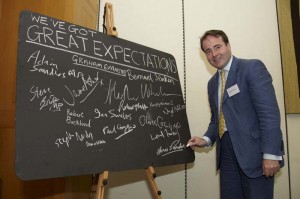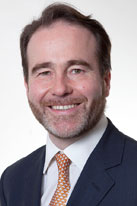Christopher Pincher supports NAS campaign to improve special educational needs system for children with autism
 Christopher Pincher, MP for Tamworth attended the parliamentary launch of The National Autistic Society’s (NAS) Great Expectations campaign on special educational needs (SEN), which aims to inform and influence the Government’s proposed overhaul of the SEN system.
Christopher Pincher, MP for Tamworth attended the parliamentary launch of The National Autistic Society’s (NAS) Great Expectations campaign on special educational needs (SEN), which aims to inform and influence the Government’s proposed overhaul of the SEN system.
The launch, held in Parliament on 27th June, was hosted by MP Steve Brine (Cons. Winchester & Chandler’s Ford). Jane Asher, President of the NAS, spoke at the event about the challenges faced by parents of children with autism in getting even basic educational support. Members of Parliament and Lords were in attendance along with children with autism, parents, carers and principals and other professionals from NAS autism-specific schools.
Christopher Pincher says, “The NAS Great Expectations Report provides a solid foundation on which to build a robust and fit-for-purpose SEN system. I believe children with autism have a right to local and appropriate services for their children and it is only right that an organisation which provides such fantastic local and national support to parents should be leading the way for these reforms.”
“I was really pleased to attend the launch of a self help group in Tamworth earlier this year. We need to do more to ensure that when children with autism leave school, they are not just left on the shelf. Local self help groups can do a lot, working with local agencies, to help plug the gap.”
Great Expectations follows research the NAS conducted with over 1,000 parents of children with autism and young people with autism about their experiences of the education system and how they feel it can be improved to work best from them. Education is a fundamental part of every child’s life, but the survey found far too many children with autism are not getting the education they need and deserve.
- Just half of parents in the survey (52%) feel their child is making good educational progress.
- 30% of parents feel that their child’s educational placement is not adequate.
- A quarter of children are not happy at school, and one in five does not feel safe.
- 43% of young people feel teachers don’t know enough about autism.
Furthermore, too many parents have to fight the system to make it work.
- 7 out of 10 parents say it has not been easy to get the educational support their child needs.
- 47% of parents say their child’s special educational needs were not picked up in a timely way.
- 48% of parents say they have waited over a year to get the right support for their child.
Mark Lever, Chief Executive NAS, says, “We have Great Expectations that the necessary changes can, and will, be made. The Government recognises that action is needed, and says they want to reform a system which is letting children and young people down. Our report sets out the practical, often simple, steps that the Government can take to create a system that works for everyone, not least the parents who battle every day for their child’s right to an education. The SEN Green Paper, and planned ‘biggest SEN reform in 30 years’, will shape the future of a generation of children with autism. Let’s get it right.”
NAS’ key recommendations:
- Parents of children with autism should have a real voice in local planning. Local authorities should base their plans on information about children with autism in their areas, and make the plans publicly available.
- All schools should have access to autism specialists and be encouraged to develop a supportive environment for children with SEN.
- Families must have clear rights and entitlements set out in a robust Code of Practice, including those who do not have an Education, Health and Care Plan (EHCP) or a Statement of SEN. Accountability procedures must be clear so that families feel confident they can get what they need quickly and easily.
- Lines of accountability for the proposed EHCPs must be clear, and the health and social care parts should carry the same weight as the education parts.
- The proposed ‘Local Offer’ must provide clear, up-to-date and detailed information based on what parents say they need to know to get the right support for their children. Independent support should be available to help parents make the best use of this information.
- We welcome the proposal for a health and development review for all two-year-olds. However, difficulties relating to autism are not always apparent at this age so as well as health visitors, teaching staff should be able to identify the potential signs of autism. The NHS should fully implement the forthcoming NICE guidelines on the diagnosis and assessment of autism.
To read the full report please visit www.autism.org.uk/greatexpectations.

